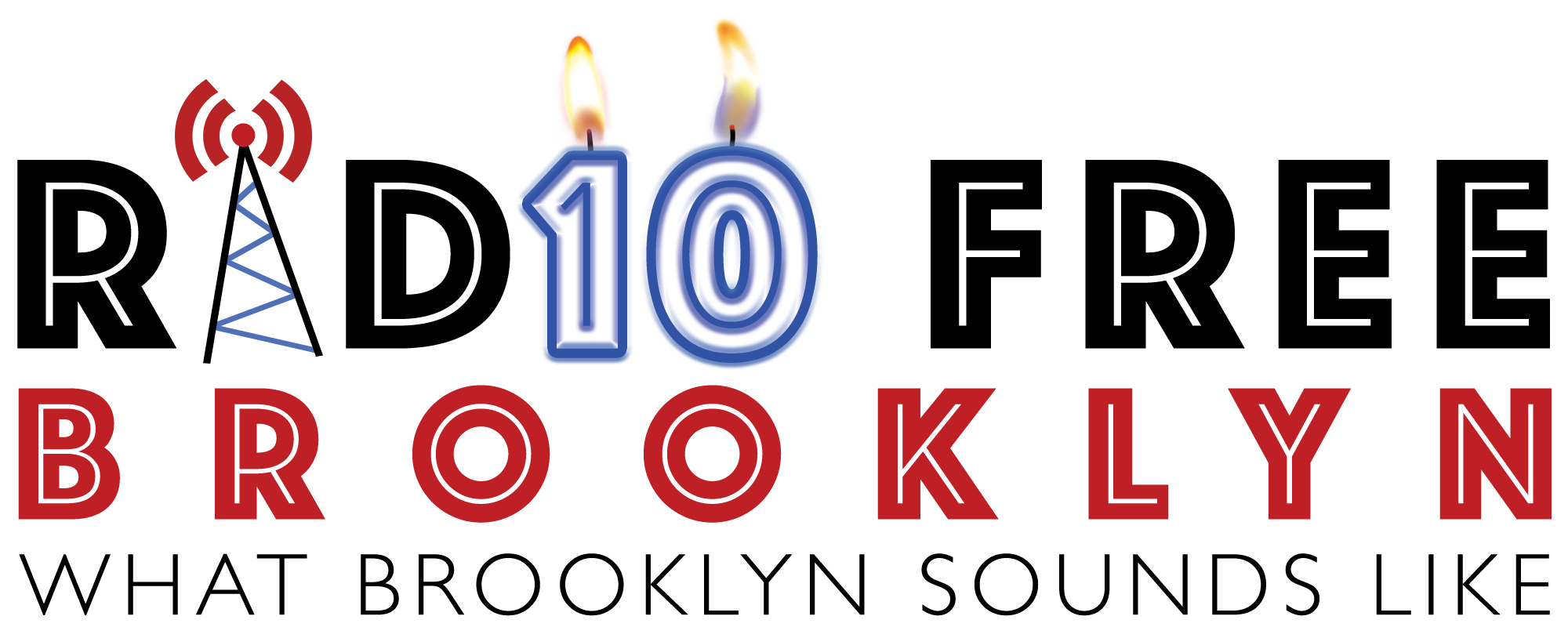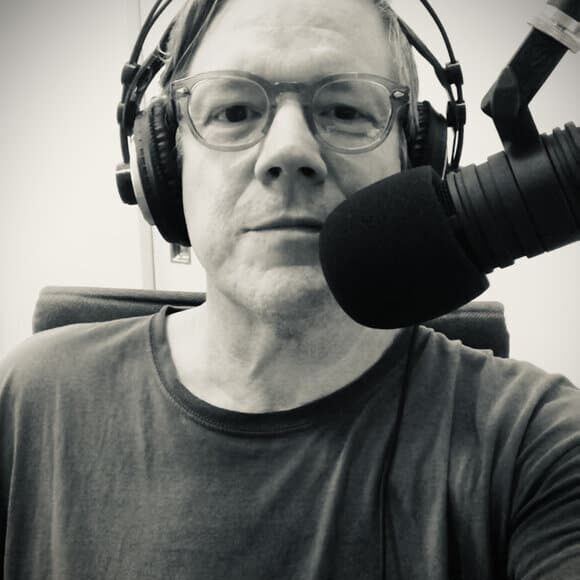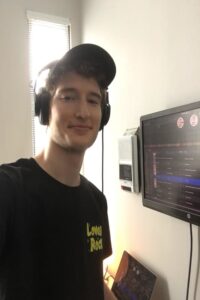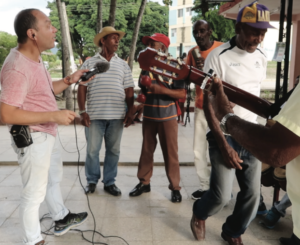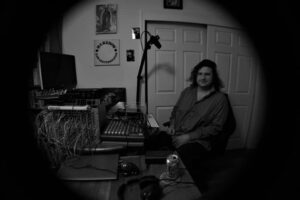“…when I was six years old, I knew in my heart that [The Monkees] were better than the Beatles, which to me was a crappy band my big brothers liked, haha.”
RFB: Hi George, welcome to Radio Free Brooklyn! Tell us a little bit about the path(s) that led you here and to you doing your show.
GF: I’ve been obsessive about music since childhood, and have worked in and around the music industry my entire life. I’ve been a performer, producer, writer, manager, label owner—you name it. I grew up just outside NYC and had the good fortune to be just the right age when the music scene for clubs, bars, record shops—and radio, was at its peak. When I was a teenager, my first band, had a minor regional hit and I spent years developing vast relationships in the business, and wetting my appetite for a constant feed of new music to collect. So, radio has always felt like a natural extension, and a fun way to stay in the game.
RFB: How did you become interested in radio and why did you choose RFB?
GF: When I was a kid, radio was primarily how we experienced the world of new music. Back then I was lucky if I got a couple of albums and a handful of singles each year. Birthday and chore money only went so far. So, radio was an influential and magical part of my early life, and something I always had an interest in. Since then, I’ve studied radio at two different schools, earned an audio engineering degree, and I’ve been a DJ at two different college stations. I also had the traffic and police report beat one summer on a commercial station.
During 2020, I finished an LP project I had been working on for many years called George Faulkner Sings Murry Wilson. A few months after the dust settled on that project, I started to look around at local radio stations to see if any might be a good fit. Looking into RFB, I found shows and people I really liked to listen to and thought it was worth a shot to see if I could get a slot. Now I’m an RFB host. It’s been five months and I’m really enjoying being back on the air and producing Metrowave.
RFB: You say you’ve been obsessive about music since childhood; can you pinpoint what that defining moment was and the song/artist that was the catalyst?
GF: The Monkees, 100%! They were on TV when I was little and had a huge impact on me. They were a struggling band, they were funny, they had excellent songs, made fantastic records, and when I was six years old, I knew in my heart that they were better than the Beatles, which to me was a crappy band my big brothers liked, haha. Weirdly, I think my Metrowave playlists still reflect the love I developed as a kid for quick, hooky, melodic pop, whether it’s in a garage rock format, R&B, R&R, or whatever. I like catchy songs that get to the point. That started for me with The Monkees for sure. No clue what the defining song was, but thinking back I’m going to say it may have been, “Look Out (Here Comes Tomorrow).”
RFB: COVID-19 is still hanging on, but that hasn’t stopped you from debuting a show! Tell us about the challenges and rewards of your process so far—and maybe a little about your in-home studio setup as well (if you have one).
GF: Apart from the challenges we’ve all faced due to the pandemic, I’ve been lucky so far. (I’m from a large, pro-science family that vaccinated early.) As far as rewards go, I only had half the Murry Wilson LP project recorded when the shutdown started. I decided to record the remainder of the album remotely, working with Philadelphia musicians (Kevin Basko of Rubber Band Gun) and from London, (Kitty and Lewis Durham of Kitty Daisy and Lewis) and it was waaaaay outside my comfort zone. They are multi-instrumentalists with working studios, who would send me the backing tracks, and I would just sing my parts in my apartment. But it worked out really well—I would do it again! (It also inspired me to do this show.) Why not produce simple things from home?) The technology exists, and I’ve got the skills. The Murry album and Metrowave will both always be pandemic rewards to me. Where there’s a will, there’s a way.

I used to have a full 16-track demo studio when I was a professional musician and producer, but I closed that studio up years ago. But, I kept a few good mics, and some of the things that make them work, so doing the radio show from home didn’t require any new gear. I change mics every few shows for fun, but right now, I’m using an Audio Technica BP-40 mic with a Focusrite Scarlett interface, a Cloudlifter, a Blue Compass boom arm, and AKG K240 headphones. I just switched from using Sound Forge for the last 15 years (for two channel work) to Audition and I’m loving it. It’s miles beyond Sound Forge. I should have switched a long time ago.
RFB: You’re also a musician—does the “not a lot of talk” (from your show description) apply to your performances as well?
GF: Yeah, I guess so. I was never all that chatty on stage when I was a performer, although when talking about music with my friends I always have plenty to say and lots of stories to tell. One of my listeners actually reached out to me and asked if I would talk a bit more on Metrowave. I’m going to try, but I do really prefer to let the music do the talking for me. Or maybe I just need to have the occasional guest to add some texture. I don’t know. I’m just trying to make a show that I would listen to, so its fast pace and quick segues are part of that.
RFB: What is the takeaway you hope people get from Metrowave?
GF: That genres can be mixed, and that old and new music can work really well side-by-side. Oh, and that Sunday nights can be a lot of fun if you give them a chance!
Tune in to Metrowave Sundays at 10pm.
